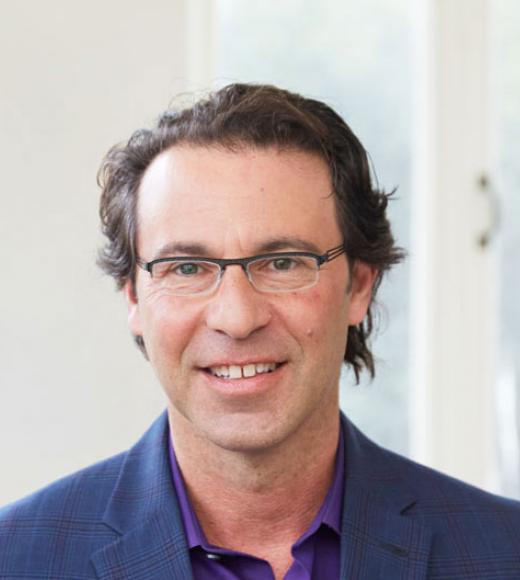
Dean Schillinger, MD
Dean Schillinger, M.D. is Professor of Medicine in Residence at the University of California San Francisco, and Chief of the UCSF Division of General Internal Medicine at Zuckerberg San Francisco General (ZSFG). He is a practicing primary care physician at ZSFG, an urban public hospital, where he sees patients, teaches in the primary care residency program, and conducts research. In his prior administrative roles, he has directed the Medi-Cal managed care clinic at ZSFG, the General Medicine Clinic at ZSFG, and has been the Director of Clinical Operations for the Department of Medicine. Dr. Schillinger also serves as Chief of the Diabetes Prevention and Control Program for the California Department of Public Health.
Author of over 130 scientific manuscripts, Dr. Schillinger carries out research related to healthcare for vulnerable populations, and is an internationally recognized expert in health communication science. His work focuses on literacy, health communication, and chronic disease prevention and management. He has carried out a number of studies exploring the impact of limited health literacy on the care of patients with diabetes and heart disease and has developed and evaluated communication programs tailored to the literacy and language needs of patients with chronic disease. He has been the recipient of research grants from NIH, AHRQ, CDC, The California Endowment, The Commonwealth Fund, and the California Health Care Foundation. He has been honored with the 2003 Institute for Healthcare Advancement Research Award; the 2008 Research Award in Safety and Quality from the National Patient Safety Foundation; the 2009 Engel Award in Health Communication Research; and the California Association of Public Hospital Quality Leaders Award for this work. He was a co-investigator for the National Association of Public Health and Hospital Institute’s Diabetes Quality Improvement Consortium and currently co-directs the California Safety Net Institute’s Innovations Exchange. In 2013 he received the APHA Everett M Rogers Award in recognition of his outstanding contribution to advancing the study and practice of public health communication.
Dr. Schillinger is the founding director of the UCSF Center for Vulnerable Populations, whose mission is to carry out innovative research to prevent and treat chronic disease in populations for whom social conditions often conspire to both promote chronic disease and make its management more challenging. CVP is based within the UCSF’s Department of Medicine located on the campus of ZSFG. CVP has distinguished itself as a practice-based research center whose work has helped translate research into community and public health practice, as well as infuse local practice back into research. CVP faculty has coordinated 8 randomized trials in community settings. Beyond the local communities it serves, CVP is nationally and internationally known for its research in health communication and health policy to reduce health disparities, with special expertise in the social determinants of health including literacy, food policy, poverty and minority status, as well as with a focus on the clinical conditions of pre-diabetes, diabetes, and cardiovascular disease, including hypertension, chronic kidney disease and heart failure. Dr. Schillinger currently directs the CVP Health Communications Program.
In his capacity as Chief Medical Officer for the Diabetes Prevention and Control Program for the California Department of Public Health, he has been expanding the program’s work in health communications, social and environmental determinants of diabetes, and health disparities. In this capacity, he has partnered with Youth Speaks, a youth empowerment organization that harnesses social media, to advance a California diabetes prevention initiative. Dr. Schillinger is also PI for the UCSF component of a recently funded NIDDK P30 Center for Type 2 Diabetes Translational Research (CDTR) with Kaiser’s Division of Research.
